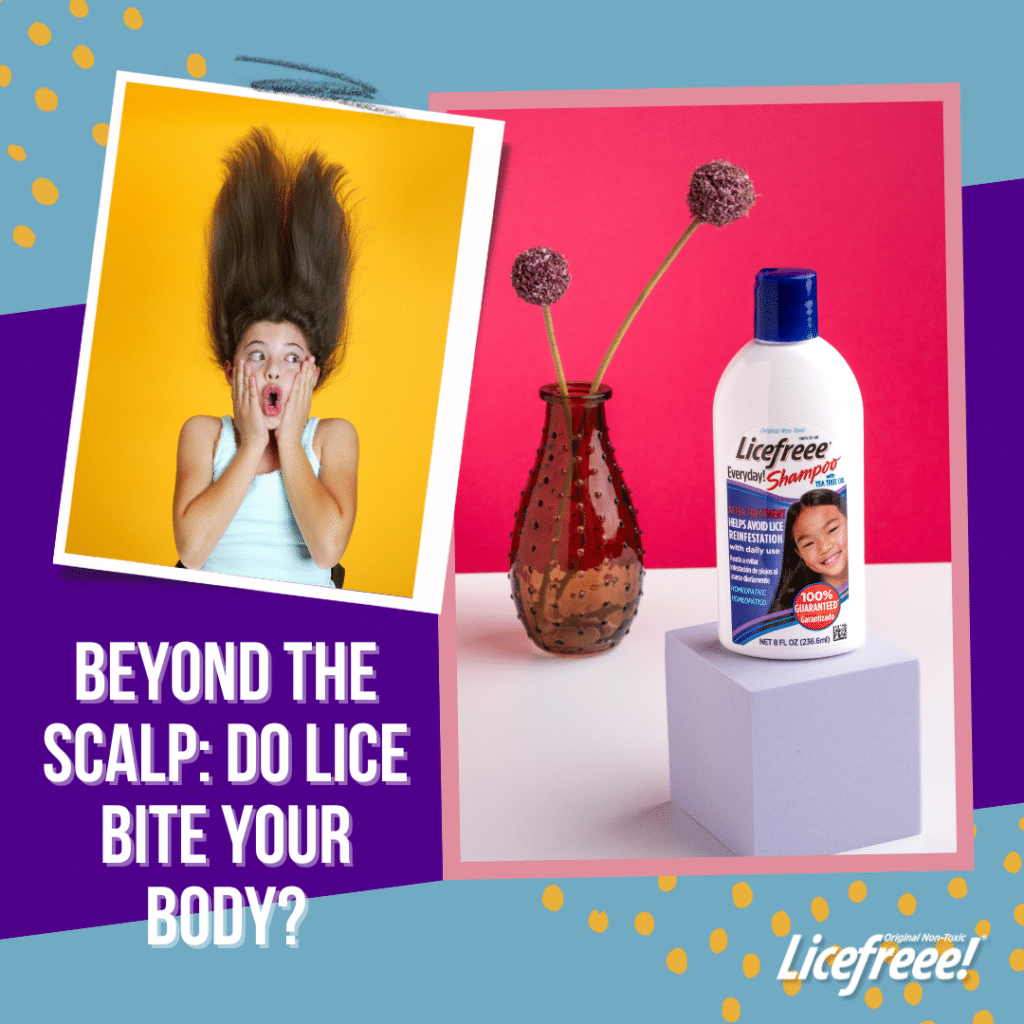
Have you ever wondered if lice can bite your body, not just your scalp? Let’s delve into this question and uncover the facts about lice behavior.
Where do Lice Live?
Head lice are parasitic insects that typically infest the hair and scalp of humans. They rely on the warmth and blood supply of the scalp to survive and reproduce. However, there are different types of lice, and their habitats can vary.
Head lice, the most common type of lice, live primarily on the scalp, where they feed on blood from the scalp and lay their eggs on the hair shafts close to the scalp. They use specialized mouthparts to pierce the skin on the scalp and suck blood, which provides them with the nutrients they need to survive and reproduce.
Body lice, on the other hand, are a different species of lice and have a different habitat. Unlike head lice, body lice live and lay their eggs in clothing and bedding, rather than directly on the skin. They only move onto the body to feed, biting the skin and feeding on blood, and then return to their habitat in clothing and bedding.
Why Are Children Prone to Head Lice Infestations?
Head lice infestations are more common among children due to their close proximity in school and social settings, where lice can easily spread through head-to-head contact. Children often share personal items like hats and brushes, facilitating lice transmission.
Why Do Head Lice Not Bite Your Body?
Head lice, as specialized parasites adapted to live on the scalp, do not typically venture beyond the scalp to bite other parts of the body. Their mouthparts are specifically designed for piercing the skin on the scalp and sucking blood from the scalp. Therefore, head lice do not have the ability to bite other parts of the body, such as the arms or legs.
What is the Difference Between Body Lice and Head Lice?
Body lice and head lice are two different species of lice with distinct habitats and behaviors. While head lice live primarily on the scalp and feed on blood from the scalp, body lice live in clothing and bedding and feed on blood from the body. Body lice are often associated with poor hygiene and crowded living conditions, such as refugee camps or areas affected by natural disasters.
What Causes Body Lice?
Body lice infestations are typically associated with poor hygiene and crowded living conditions. . Body lice are often found in homeless populations, refugee camps, and areas affected by natural disasters.
Should You Use Head Lice Treatment on Body Lice?
While head lice treatments are effective against head lice, they are not designed to treat body lice infestations. Body lice require a different approach to treatment, focusing on washing clothing and bedding in hot water and using insecticides if necessary. If you suspect a body lice infestation, you should seek medical advice immediately.
How to Prevent Head Lice
Preventing head lice infestations is crucial, especially in environments where they are common, such as schools and childcare facilities. In order to prevent head lice, stay attuned to any notifications from your child’s school about lice infestations. If you suspect lice, conduct a thorough at-home scalp inspection. If you do identify a lice infestation, you should use a treatment immediately.
After you finish treating head lice, you can take steps to prevent them from returning. Rest easy with Licefreee Everyday Shampoo, your daily defense lice shampoo. Used regularly, it helps avoid lice infestation, keeping your family lice-free for good!
There are many differences between head lice and body lice, both of which require different treatments. For all of your head lice needs, Licefreee products are the ultimate solution.
